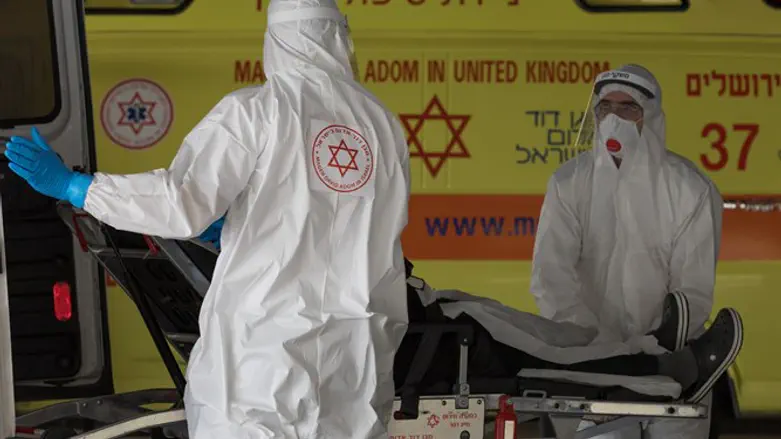
Michael Schur, creator of NBC's "The Good Place," a comedy about the afterlife and redemption, talks about what it means to be a good person in the midst of a pandemic.
"I feel like the simplest answer is to say, 'Well, there are some things, there is a sort of minimum requirement of all of us right now that applies to literally everyone.' It applies to … any socioeconomic status, anywhere on earth you live, anything. There's a sort of minimum that we all have a responsibility to accomplish, to the best of our ability. Not that it's the same amount of easy for everyone, but we all have to do some minimum things. Things like try to stay inside as much as we can. Try to stay away from other people. Try to cover our mouths if we walk outside. Act responsibly with respect to the spread of the virus," he said.
So what do we owe each other? "I said before that there's a certain sort of minimum that is required of everyone, to the best of our abilities. The basics, right. Staying inside, staying away from people, trying to kind of stop the spread of the disease. But then beyond that, there's an enormous sliding scale, I think. If you have the ability to, for example, pay your dog walker, if you have the financial means to continue to pay your dog walker who can't walk your dog anymore, or someone who helps you clean your house, or anybody who works for you in any capacity. If you have that ability, I think you need to do that. And then, you know, you keep sliding up the scale. If you have the ability to keep people on the payroll at your business who are working for you, even if it means you lose money, I think you have to do that, too. And it just keeps going up and up and up."
"I think, in other words, we have to hold people who are billionaires to a much higher standard of what is expected of you and what are your responsibilities. And I think some of the saddest stories and pictures that have come out are stories of people who essentially have all the money in the world — and all the freedom and ability in the world, and for whom this has disrupted them the least, really, except for just, you know, line items and a spreadsheet in terms of how much profit or loss they're making over the next couple of months — who are not kind of stepping up and doing that stuff.
"Now, some of them are. Jack Dorsey, who owns Twitter — who's not a guy I particularly had any admiration for until pretty recently, because I have a lot of problems with the way Twitter is run — just donated, you know, 28% of his net worth to helping stop the virus. … He put $1 billion into a fund. And he started putting his money where his mouth is. And I don't understand, frankly, why anyone who has that ability isn't doing that. I mean, some people are. Bill Gates is. And, you know, there are people who are doing it. But I mean, free market economics is great sometimes. But if there's no market, the market's gone. Then it's sort of incumbent upon the people who own and operate it to help get it back on track. And that's been the saddest thing, I think, is seeing the lack of sort of stepping up of the people who have the greatest ability to step up."
Schur also spoke about the ‘trolley problem’ of the coronavirus pandemic.
"The joy and the frustrating, maddening thing about the 'trolley problem' is that it presents you with two terrible options. The whole point is you're on a trolley. The brakes fail, you’re about to smush five people. There's a lever you can pull and you can switch onto another track. But if you do, you're going to smush one person who's standing there. And so there's no good outcome. There's no Superman scenario where you pick up the trolley and fly it off the track to safety and everybody claps."
"So it's a weirdly apt metaphor for the situation we're in now. Because at least in my experience, the simplest actions end up sort of resulting in — or potentially resulting in — two kind of crummy outcomes. And so, you know, what's interesting about the trolley problem isn't the problem itself. It's what happens to the human brain as it thinks through what the right answer is.
"Because after you ask that first basic question, you start asking other ones, 'What if you knew one of the people standing on the track? What if you weren't a passenger on the train, but you were the driver and ostensibly had taken some kind of course in what to do if the brakes fail, or whatever?' And the questions get more and more complicated. The results are always the same. Either five innocent people die, or one innocent person dies. But your answers keep changing, which is really interesting.
"So I think that the end result of all of the actions we take is sort of unknowable right now, except in very specific circumstances. Except when you say, 'OK, well, if I stay inside as much as I can, and I stay away from other people as much as I can — to the best of my ability, whatever that ability is — that's the best I can do.' That's the only thing that we know for sure really helps."
